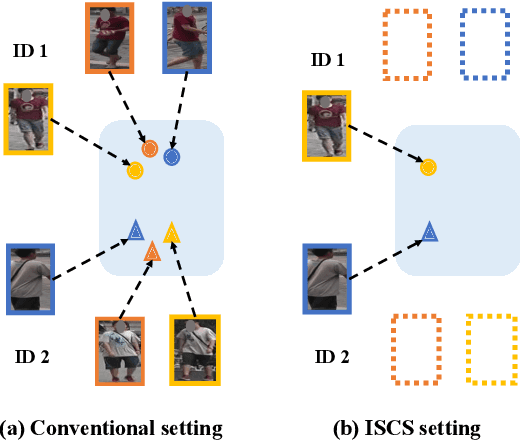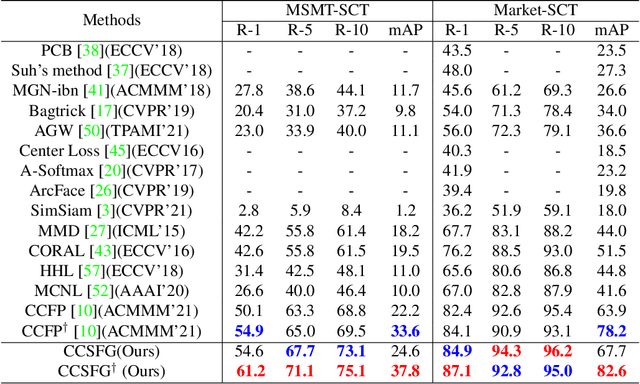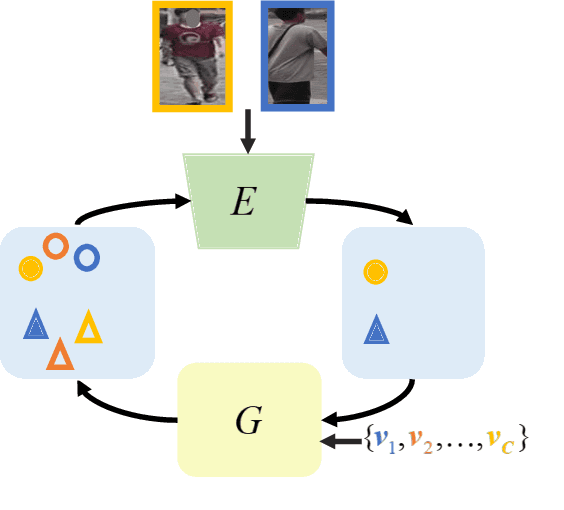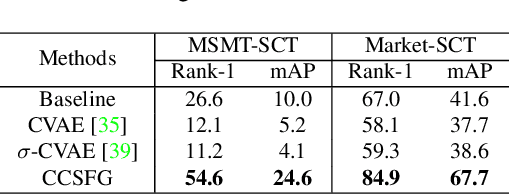Camera-Conditioned Stable Feature Generation for Isolated Camera Supervised Person Re-IDentification
Paper and Code
Apr 04, 2022



To learn camera-view invariant features for person Re-IDentification (Re-ID), the cross-camera image pairs of each person play an important role. However, such cross-view training samples could be unavailable under the ISolated Camera Supervised (ISCS) setting, e.g., a surveillance system deployed across distant scenes. To handle this challenging problem, a new pipeline is introduced by synthesizing the cross-camera samples in the feature space for model training. Specifically, the feature encoder and generator are end-to-end optimized under a novel method, Camera-Conditioned Stable Feature Generation (CCSFG). Its joint learning procedure raises concern on the stability of generative model training. Therefore, a new feature generator, $\sigma$-Regularized Conditional Variational Autoencoder ($\sigma$-Reg.~CVAE), is proposed with theoretical and experimental analysis on its robustness. Extensive experiments on two ISCS person Re-ID datasets demonstrate the superiority of our CCSFG to the competitors.
 Add to Chrome
Add to Chrome Add to Firefox
Add to Firefox Add to Edge
Add to Edge